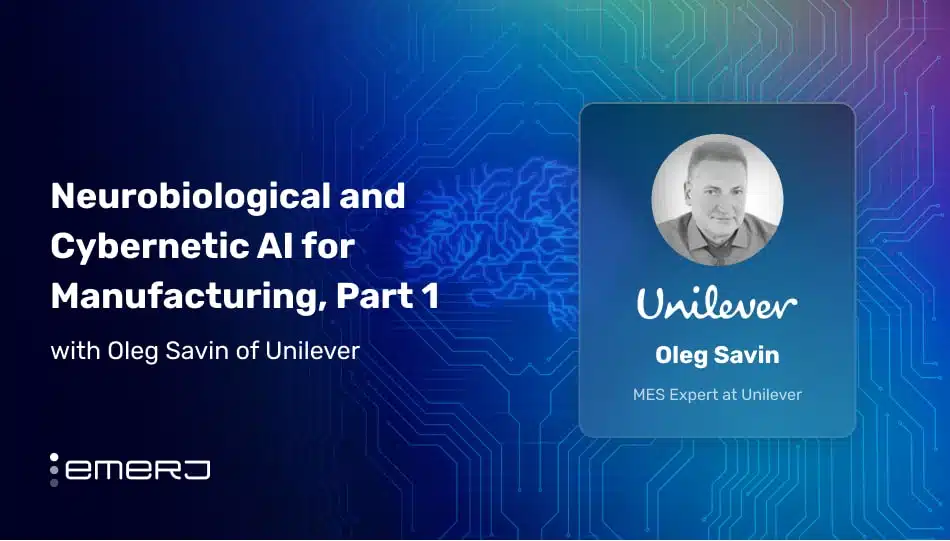Moore Stephens estimated the size of the marketing technology or martech industry around $24 billion in 2017. It follows that AI would find its way into the martech world. Numerous companies claiming to assist organizations in their marketing; we wrote a report on marketing and AI detailing this connection.
As of now, numerous companies claim to assist marketers in aspects of their roles from customer profiling, to analytics, to chatbots. As marketing can be applied to every industry, the goal of this report to allow business leaders in any industry to garner insights they can confidently relay to their executive teams so they can make informed decisions when thinking about AI adoption.
We researched the space to better understand where AI comes into play in the martech industry and to answer the following questions:
- What types of AI martech applications are currently in use in industry?
- What tangible results have AI martech applications driven in industry?
This report covers martech vendors offering software across three applications:
- Target Marketing
- Chatbots
Target Marketing
People.AI
People.AI is a San Francisco-based company with 91 employees. People.AI offers the People.AI platform, which it claims can help track and analyze customer contacts and their activities to forecast there buying intent and where they are in a sales funnel using natural language processing for sentiment analysis and predictive analytics.
People.AI claims users can add their customer data to their CRM that has been integrated with the People.AI platform. Then, People.AI will match that individual with its 96 sources of data points in order to determine the individual’s interest and engagement level to then predict where a contact is within the business cycle. According to People.AI, the software automatically records analyzes sentiment, sales staff actions, competitor mentions, and competitor sentiment of the contact in all linked email, phone, calendar, and video conferencing accounts.
We can infer the machine learning model behind the software was trained on hundreds of thousands of customer interactions via email and video conversation involving the sales and marketing of a product. This data would have been labeled as positive or negative sentiment revolving around a customer. The labeled data would then be run through the software’s machine learning algorithm.
This would have trained the algorithm to discern the chains of text or sequences and patterns of 1’s and 0’s that, to the human brain, might be interpreted as positive or negative sentiment, which might indicate a customer prone to buy or a customer prone to back out of a deal, as displayed in an email or video call.
People.AI claims to have helped PandaDoc gain 20% of their time back by automatically entering all sales activities their reps conducted and by making prioritized sales activities clear to sales users. The exact method by which this statistical figure was determined is not disclosed by the company.
People.AI also lists Lyft, Gainsight, Cogniance as some of their past clients. Additionally, People.AI has raised $37 million in venture funding in part from the prominent venture firm Andreessen Horowitz.
Andrey Akselrod is CTO at People.AI. He holds a bachelor’s degree in computer science from Brooklyn College Previously, Akselrod served as co-founder and CTO at Smartling.
Zylotech
Zylotech is a Boston-based company with 85 employees. Zylotech offers a namesake software, which it claims can help businesses solidify their customer profiles in one software by pulling customer data from all other sources, unifying it, removing duplicate information, and adding to the profile’s missing information using machine learning.
Zylotech claims a user can input a customer profile into the software and Zylotech will pull all known data on the customer into the software and enhance the profile by pulling information in from unnamed 3rd party data vendors. Zylotech claims the more the software is used, the more effective the software become. The process in which the machine learning system takes user data and turns it into insight is unclear. We do not know if the software requires an in-house data scientist to operate or not.
Below is a short 5-minute video demonstrating how Zylotech works:
Our research yielded no results when we tried to find case studies for the software. Zylotech lists Dell, Kofax, Staples, Oracle, and Keurig as clients they have helped in the past.
Andrew Milanow is the Principal Data Scientist at Zylotech. He holds a PhD in Cognitive Psychology from Columbia University. Previously, Milanow served as Director of Business Analytics at Baker Tilly. We also interviewed Abhi Yadav, the CEO at Zylotech, on an episode of our podcast: AI for Personalization in Marketing.
Realeyes
Realeyes is a London-based company with 69 employees. The company offers a software which it claims can help businesses determine the best advertisement to show their target audience by gauging the attention that members of that audience pay to their advertisements.
We can infer that Realeyes allows advertising testers, possibly crowdsourced, to download their software onto their laptops. The software then accesses the testers’ webcams and tracks testers’ faces as they watch video advertisements provided by the client.
RealEye reports the machine learning model behind the software was trained on 14 million video frames from 29,000 videos showing people observing web content from various angles and in various lighting conditions. These images would have been labeled by human annotators as either paying full attention or not paying full attention. This labeled data would then be run through the software’s machine learning algorithm. This would have trained the algorithm to discern the sequences and patterns of 1’s and 0’s that, to the human eye, form the footage of someone paying various levels of attention to content.
Then, RealEye provides statistics on user attention and emotion on a dashboard display. RealEye provides an “EmotionAll” score for videos tested using the software. The score is derived from the video’s Attraction (20%), Retention (30%), Engagement (20%), and Impact (30%) on the viewer and compared to the results of other videos in the RealEye database.
Below is a short 3-minute video demonstrating how RealEye works:
RealEye claims to have helped Heineken determine the more effective of their two ad strategies between two-minute videos or shorter 30-second trailers of similar content. Using RealEye, engagement and emotional resonance was far higher on the longer video ads. As a result, Heineken’s marketing partner focused all ad funding to the longer videos and achieve two times higher click-through rates and three times higher social actions than the trailer material.
RealEye also lists Twix, LG, and a number of automotive manufacturers, such as BMW, Audi, and Nissan as some of their past clients.
Elnar Hajiyev is the co-founder and CTO at RealEye. He holds a PhD in Computer Science from Oxford University.
Chatbots
Genesys
Genesys is a United States-based company with 6000 employees. Genesys offers a chatbot named KATE, which it claims can help companies market and sell their goods using natural language processing.
Genesys claims their chatbot can proactively reach out to users via a chat window on a website and field questions the user has. Additionally, the bot can make product recommendations related to the content on the website they are viewing and handle issues or questions they may be having during the sales process.
We can infer the machine learning model behind the software was trained on hundreds of thousands of customer support chat interactions involving common product queries. This text data would have been labeled as various types of questions and interactions such as a question on the composition of the product, clarification on compatibility with other technologies or refund request. The labeled text data would then be run through the software’s machine learning algorithm. This would have trained the algorithm to discern the chains of text that, to the human brain, might be interpreted as a product information request as displayed in a chat message.
Once the chatbot determines the nature of the query, it would produce a response in the chat to the customer, perhaps with a link to an order form if the customer was satisfied with the initial answer to the user’s question.
Below is a short 2-minute video demonstrating how KATE works:
Our research yielded no results when we tried to find case studies for the software.
Slava Zhakov is CTO at Genesys. He holds a PhD in Computer Science from Saint Petersburg State University of Aerospace and Instrumentation. Previously, Khakov served as CTO at Alcatel-Lucent, a brand of Nokia.
Takeaways For Business Leaders Interested in Martech
Business leaders looking to explore AI vendors for marketing may want to look at our report on personalized marketing with AI to gain more insight on how AI could help with product recommendation, ad targeting, and dynamic website composition.
Zylotech’s technology seems to require a number of integrations to outside software and an individual able to maintain and monitor the insights derived from Zylotech’s AI. That said, it appears to be explicitly for enterprises with data stored in multiple places. Those companies must also be explicitly looking to unify their data across the company and generate additional customer data insights.
Genesys seems to be the company with the most traction in the industry given their 6000 employees and multiple AI-driven software solutions for businesses. Their machine learning-powered platform is designed for “omnichannel engagement,” which extends past the functionality of the chatbot KATE and seeks to apply their machine learning technology in other aspects of business, not simply marketing. That said, adopting such AI technology does not often come easy for a businesses, and business leaders ought to be mindful of those risks.
People.AI doesn’t seem to have executives in its C-suite with much AI experience, but they are based in San Francisco and backed by Andreeson Horowitz. Oftentimes, prominent venture capitalist firms back AI vendors with the AI talent to back them up, but we can assume that Andreeson Horowitz have done their homework on People.AI. The firm likely would not invest in the vendor if it were not offering a genuine AI solution. In general, however, we warn readers to be wary of companies with C-teams that don’t include AI talent.
One through line between all the companies highlighted in this report is the need for data science work by the purchasing company in order to achieve results with the AI solutions. RealEye requires it to be fed video data or images of users interacting with content. Peope.AI and Zylotech both require a number of 3rd party integrations of CRMs and other data silos to gather the appropriate data that is needed for success with the tool. KATE requires some amount of training in what the appropriate action is or when the appropriate time is to engage with a customer. Presumably, KATE needs to see labeled customer interaction data on customer support interactions that are specific to the client companies.
Header Image Credit: pcrevue



















